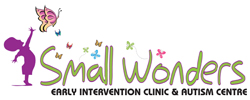Occupational Therapy
Paediatric occupational therapists helps children gain independence while also strengthening the development of fine motor skills, sensory motor skills and visual motor skills that children need to function and socialize.Paediatric occupational therapists are trained to address sensory-processing issues and help equip parents to successfully manage their child's behavioural struggles. We apply special approaches and techniques to maximise the child’s engagement, achievement and independence in all activities, including those at school, play, leisure and self-care skills such as dressing and feeding. We paediatric occupational therapists work with babies, children and teenagers up to the age of 18, with an expert understanding of the child’s development and condition, we analyse why a child may be struggling to carry out specific tasks to then devise a bespoke treatment plan to address these specific issues.
WE TREAT FOR
Children may require occupational therapy with or without the presence of medical condition.
Kids with the following medical conditions are considered to be “at risk” for delays in skills
impacting participation in home and school environments.
Sensory processing/integrative disorder.
Developmental coordination disorder.
Developmental delay.
Autism persuasive developmental disorders.
Learning problems or disability
Down syndrome and other syndromic conditions
Juvenile rheumator arthritis
Orthopedic problems
Birth injuries/birth defects
Spina bifida
Apydrocephalus
Other neurological deficits
Cerebral palsy and other chronic illnesses
Traumatic injuries (brain or spinal cord)
WHAT CAN BE ACCOMPLISHED THROUGH TO
Occupational therapists work with children in the following areas:
Improving fine motor skills so they can grasp and release toys and develop good hand
writing skills.
Addressing hand-eye coordination to improve kids play and school skills (hitting a target,
batting a ball, copying from black board etc.).
Learning basic tasks (such as bathing, getting dressed, brushing their teeth and feeding
themselves).
Maintaining positive behaviors in all environments (e.g.: instead of hitting others or
acting out, using positive ways to deal with anger, such as writing about feelings or
participating in a physical activity.
PEDIATRIC OCCUPATIONAL THERAPY
Evaluating the need for specialized equipment such as wheel chairs, splints, bathing
equipment, dressing devices or communication aids
Improving attention and social skills to allow development of interpersonal
relationships.


